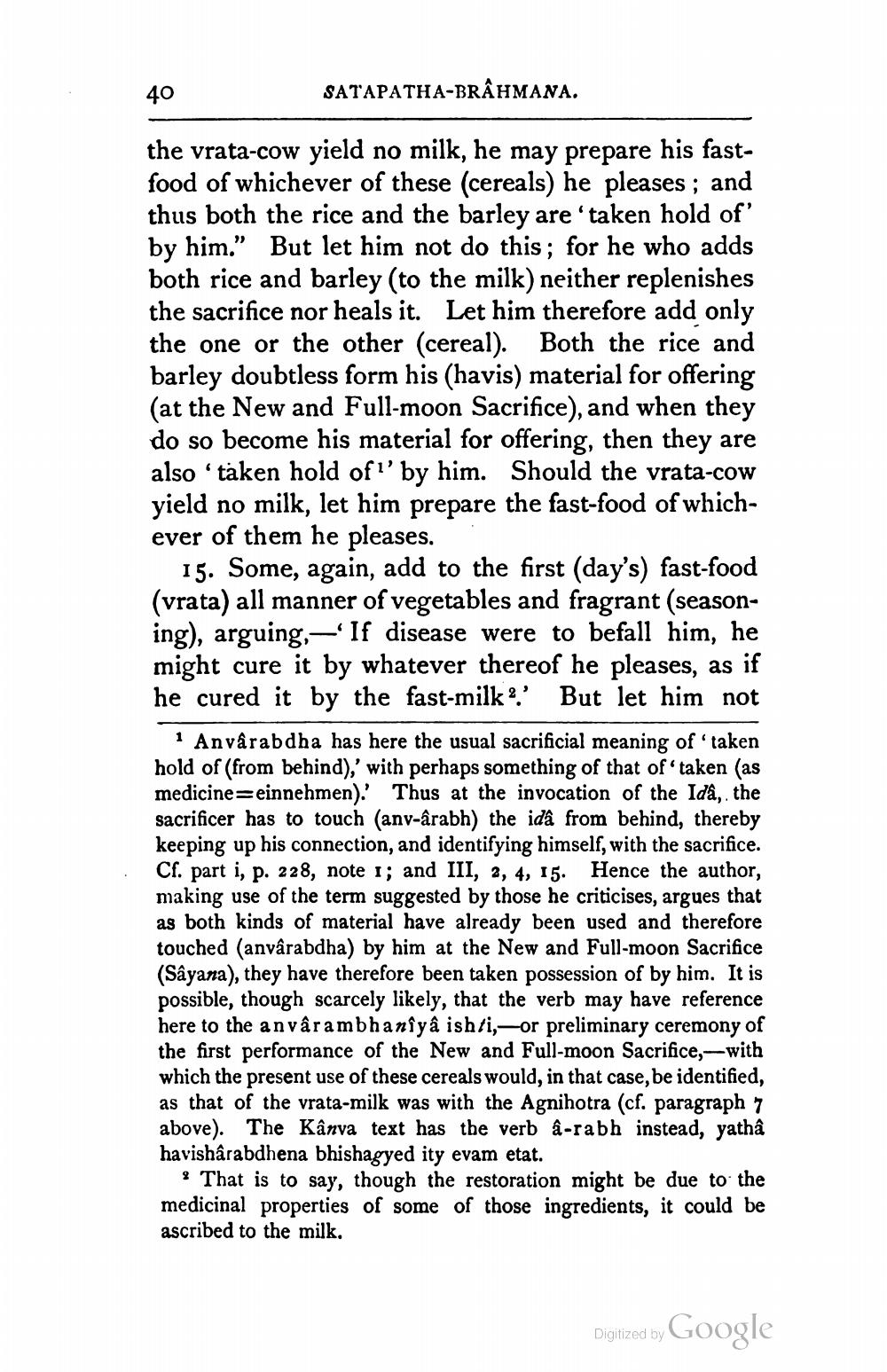________________
40
SATAPATHA-BRAHMANA.
the vrata-cow yield no milk, he may prepare his fastfood of whichever of these (cereals) he pleases; and thus both the rice and the barley are 'taken hold of' by him." But let him not do this; for he who adds both rice and barley (to the milk) neither replenishes the sacrifice nor heals it. Let him therefore add only the one or the other (cereal). Both the rice and barley doubtless form his (havis) material for offering (at the New and Full-moon Sacrifice), and when they do so become his material for offering, then they are also taken hold of 'by him. Should the vrata-cow yield no milk, let him prepare the fast-food of whichever of them he pleases.
15. Some, again, add to the first (day's) fast-food (vrata) all manner of vegetables and fragrant (seasoning), arguing,—If disease were to befall him, he might cure it by whatever thereof he pleases, as if he cured it by the fast-milk?' But let him not
1 Anvârabdha has here the usual sacrificial meaning of taken hold of (from behind),' with perhaps something of that of taken (as medicine=einnehmen).' Thus at the invocation of the Ida, the sacrificer has to touch (anv-ârabh) the idâ from behind, thereby keeping up his connection, and identifying himself, with the sacrifice. Cf. part i, p. 228, note r; and III, 2, 4, 15. Hence the author, making use of the term suggested by those he criticises, argues that as both kinds of material have already been used and therefore touched (anvârabdha) by him at the New and Full-moon Sacrifice (Sâyana), they have therefore been taken possession of by him. It is possible, though scarcely likely, that the verb may have reference here to the anvârambhanîyâ ishti,-or preliminary ceremony of the first performance of the New and Full-moon Sacrifice, with which the present use of these cereals would, in that case, be identified, as that of the vrata-milk was with the Agnihotra (cf. paragraph 7 above). The Kânva text has the verb a-rabh instead, yatha havisharabdhena bhishagyed ity evam etat.
? That is to say, though the restoration might be due to the medicinal properties of some of those ingredients, it could be ascribed to the milk.
Digitized by Google




